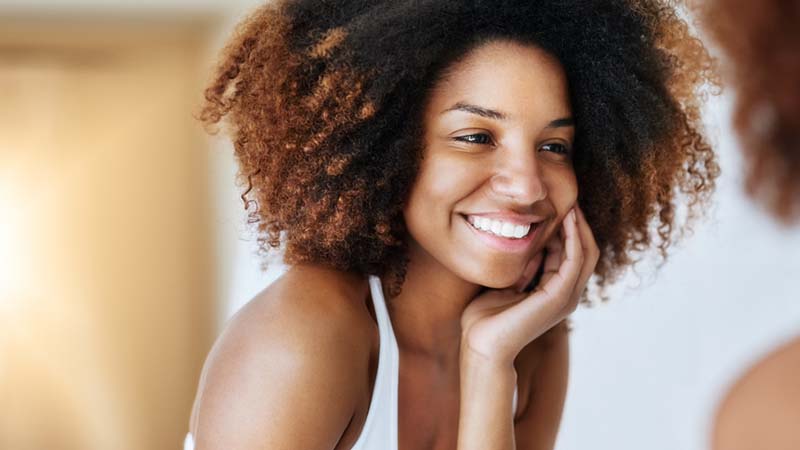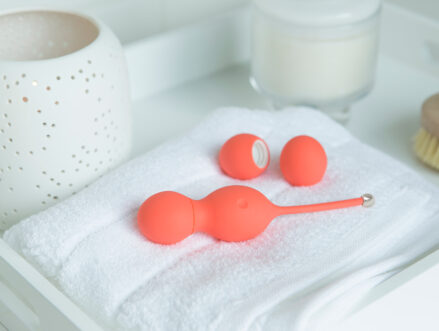Life
It’s a Self-Esteem Thing

How’s your genital self-esteem going? Not a question you’ve gotten lately or one you’re likely to hear anytime soon. And while it may seem like a weird thing to consider, research shows that people who like and are comfortable with the way their genitals look report having more satisfying sex lives, and have better sexual health than individuals who don’t.
The reality is, a small number of bodies deemed attractive dominate our culture and media. When this comes to genitals this means large, round breasts with perky nipples, giant throbbing cocks that stay erect for hours, tucked in labia, and hairless bodies. And while genital self-esteem isn’t exactly a topic that people are talking about, when educating students about sex, it’s one of the most important ones that I factor into our conversation. College-aged students are usually old-hat in the porn arena by the time they graduate high school, so part of the responsibility of sexual health education in higher education settings should be to increase genital esteem by showing a variety of vulvas, penises, breasts, and buttholes.
Remember that ground-breaking anatomy lesson on Orange is the New Black? Three holes! A no-brainer for people who already knew the difference between anus, introitus, and urethra, but for many who own those three distinct body parts, hearing that the vagina and urethra were two separate body parts is ground-breaking. These biological “basics” are just the tip of the iceberg when it comes to anatomy, physiology, reproduction, and how bodies function. Sexual health involves much more than just medical concerns of avoiding pregnancy and STIs. Once people understand their bodies and how they typically function, and the realm of diversity out there, they can begin to understand their own body’s quirks and what they find pleasurable. I often teach that masturbation is one of the best ways to figure this out.
Culturally, we don’t talk about masturbation as a healthy part of sexual expression and health. Through our lack of acknowledgement or snickers that it’s something we do when we aren’t getting sex from others, we reinforce the idea that this healthy act is actually shameful and adolescent. As advocates for sexual health, we need to address masturbation as a universal experience rather than treating it as everyone’s dirty little secret.
Masturbation is fantastic for the body — it promotes genital health, reduction of infections, and is a fantastic stress reduction tool. With accurate information about sex toys and body-safe materials, conversations about masturbation can be an opening to better sexual communication, genital self-esteem, and understanding pleasure for you and your partner.
Megan Andelloux, the Founder and Executive Director of The Center for Sexual Pleasure and Health is a Clinical Sexologist and certified Sexuality Educator, accredited through The American College of Sexologists and The American Association of Sexuality Educators, Counselors, and Therapists. Her innovative education programs, writing, social media presence, and ambitious speaking schedule has helped make her one of America’s most recognized and sought-after experts in the growing field of sexual pleasure, health, and politics.

